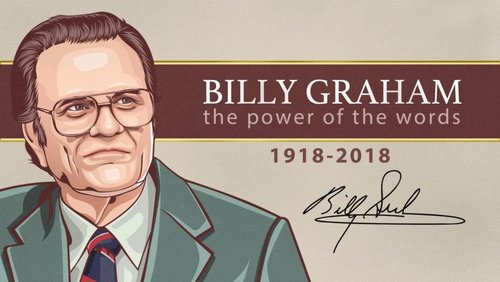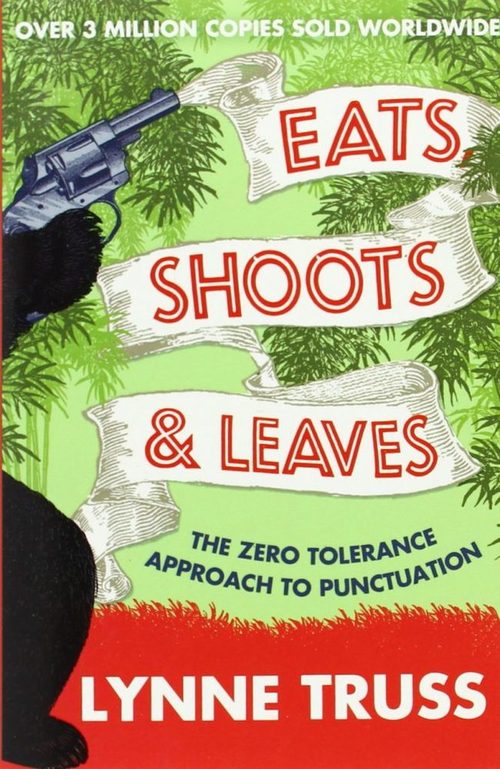


03/01/2018
Crooked timber. This year marks the sixtieth anniversary of the publication of Michael Young’s book The Rise of the Meritocracy. You can read the book online here.
It takes the form of a long (170 pages) essay supposed to be written by a British sociologist of the year 2033. He reviews the previous century of social developments in his country, which are summarized by his title. The human sciences have advanced to the point where merit, defined as intelligence plus effort, can be measured early in life. Indeed, the narrator tells us, a recent Nobel Prizewinner "has recently shown that the intelligence of children could at last be safely predicted from the intelligence of their forebears."
The result is of course a society stratified by merit, thus defined. Smart exam-passing drudges form the elite. Less smart-or-industrious "technicians" keep the machines running. The dumb or incorrigibly lazy are a problematic underclass.
It seems to work pretty well, but there’s a worm in the meritocratic apple — at least two, in fact:
• Feminism. Women, the narrator tells us, advance through the meritocratic education system along with men:
But what happens then? They take the post for which they have been trained only until they marry. From that moment they are expected, for a few years at any rate, to devote themselves to their children. The sheer drudgery of their lives has been much relieved by the revival of domestic service [to provide employment to low-merit losers] and the help of husbands. But they cannot, if they take any notice of the teaching of psychology, entrust the entire care of their offspring to a person of low intelligence.• Radical conservatism. A faction in the Conservative Party "have actually urged … that the hereditary principle should be openly restored." This, the radicals claim, would just be an acknowledgment of reality: "The top of today are breeding the top of tomorrow to a greater extent than at any time in the past. The elite is on the way to becoming hereditary."
These and other discontents have brought about a Populist movement led by renegades from the elite, especially women. The narrator tells us of a great Populist rally planned for the following spring, May of 2034, at Peterloo. (A name with great historical resonance for English democratic socialists like Michael Young.) The narrator promises to attend this rally and report on it.
A note added at the end of the book tells us that:
Since the author of this essay was himself killed at Peterloo, the publishers regret they were not able to submit to him the proofs of his manuscript …Michael Young was much vexed in later life to see the word "meritocracy" given a positive spin. He disliked the idea; or at least, as his 21st-century narrator writes:
If sociology teaches anything, it teaches that no society is completely stable; always there are strains and conflicts.I think most Americans, if put to the question, would say that meritocracy — rewards proportional to one’s ability and effort — is an ideal; much more desirable, at least, than an aristocracy of birth. The notion that a meritocracy may not be stable, may in fact produce an aristocracy of birth, is not welcome to us. It may none the less be true.
Michael Young’s prognostication has an effect on me similar to the one David Hume’s philosophy had on Bertrand Russell.
To refute him has been, ever since he wrote, a favorite pastime among metaphysicians. For my part, I find none of their refutations convincing; nevertheless, I cannot but hope that something less skeptical than Hume’s system may be discoverable.[Permalink]
Landline lament. I still have a landline phone in my house, with a screen showing caller i.d. Nowadays ninety percent of incoming calls are junk.
The phone allows me to block incoming calls by number, but this has proven useless. For a while I diligently keyed in the junk numbers to be blocked. The phone has a limit of two hundred, though. There are way more junk numbers than that. It is in fact unusual to see a junk number I've seen before. And a lot of them aren’t even proper phone numbers, just four-digit strings, or "Out of area" (which I suppose means it’s coming from some robot in Bangladesh) or "Private caller" (what the hell does that mean?)
We've pretty much stopped picking up the phone unless we happen to be near a handset and recognize the number as someone we actually want to talk to.
So here’s my question: Is there a phone I can buy that instead of blocking unwanted numbers from a list, blocks all numbers except those on a list? In other words, instead of a positive block list ("block these"), a negative block list ("don’t block these")? There are only a couple of dozen numbers I want to pick up for; why should I be bothered by the phone ringing from anyone else?
Or am I just a relic: the last person on the eastern seaboard with a landline?
The new sixty? Billy Graham passed away February 21st. I made what I hope is an appropriate brief comment on Radio Derb.

The great preacher was 99 years old. This is unremarkable now. The last obituary I can recall noticing was Hugh Hefner’s. Ner was 91 when he passed last September.
Living into your nineties used to be highly unusual. In the late 1940s and early 1950s there was a popular weekly radio program in Britain titled Have a Go! It was an undemanding quiz show targeted at working-class people — or "fowk," as the unpretentious (in fact determinedly anti-pretentious) northerner emcee Wilfred Pickles would have said.
The show’s main appeal was Pickles' folksy, or fowksy, chatting with the contestants about their very ordinary lives. "What’s been your most embarrassing moment?" was a favorite line.
My parents listened to that show. I find in fact that I can still sing the first few bars of the intro music. I had forgotten, though, a thing David Kynaston notes in Family Britain 1951-1957: There was "a large round of applause if a contestant turned out to be over 60."
Will Japs cuck? When reading VDARE.com and other immigration-restrictionist outlets, you are frequently offered Japan as an admirable example of immigration minimalism. Here for example was me last October, purring with approval at Japan for having admitted just three refugees in the first half of 2017.
In one of my first conversations with Peter Brimelow I asked him what he thought a sensible U.S. immigration policy should look like. "Like Japan’s," was Peter’s succinct reply.
Alas, human hearts exist to be broken. A reader sent me this three-minute clip from NHK Newsline. NHK is Japan’s national public broadcasting organization, equivalent to Britain’s BBC; NHK Newsline is their English-language newscast.
In the clip we hear about Japan’s labor shortage. Apparently it’s particularly difficult for moving companies to find drivers and porters. The Japanese government wants to address the problem by loosening up immigration rules.
Say it ain’t so! What are we going to offer as a model if the Japanese cuck on immigration? Well, there’s always Israel, I guess.
I’m not going to panic. I can recall recurrent stories, back across several years, about someone or other in Japan proposing more immigration. Nothing much ever happens. The Japanese don’t want a flood of foreigners into their country. Even if they do loosen up, it will be neighboring Asian countries they'll take their labor from: Indonesia, Vietnam, the Philippines. I seriously doubt they would be so terminally stupid as to favor Afghans or Somalis.
I liked the clip anyway, mainly for the delectable lisp of the female reporter, Yukari Kondo. "Finding a company to herrp them re-rocate is a charrenge …" Should Ms Kondo visit New York any time, I'd be glad to buy her lunch just for the pleasure of hearing her talk.
In Borisiam. In last month’s diary I omitted to note the tenth anniversary of Boris’s passing. The Derbyshire family’s beloved mutt died January 18th 2008 after being with us almost sixteen years.

Two readers emailed in to chide me for the omission. I am sorry.
I passed the following observation in my Diary seven years ago:
Nothing I write or say about politics ever generates one-tenth as much email, or inspires one-tenth the number of people to cross a room to shake my hand, as do my treehouse and Boris pages. Those are my long-term star items. Politics? Fuhgeddaboutit.That was before I attained everlasting worldwide fame with "The Talk: Nonblack Version," which is the thing people most often want to ask me about now. Still it says something about human nature — something I find cheering and endearing — that those two thousand words of remembrance for a family pet have left as much of an impression on the world as the hundreds of thousands I have written on politics and culture.
Endearing, yes. I think the human race is going to be all right.
Browsing Pinker. Here’s another guy who thinks so: Steven Pinker.

Professor Pinker has a new book out: Enlightenment Now: The Case for Reason, Science, Humanism, and Progress. My copy arrived last week but I haven’t done much beyond a perusal of the index and some random browsing.
I've met Pinker and found him very agreeable company, but I have mixed feelings about Pinker as a cultural historian. I aired those feelings in a review of his previous book, The Better Angels of Our Nature: Why Violence Has Declined, concerning which I wrote:
The Better Angels of Our Nature is a rich and argumentative book containing a wealth of empirical analysis seasoned with Pinker’s usual complement of anecdotes, wit, and felicitous turns of phrase … It seemed to me, though, that Pinker is, in this book, noticeably less successful than formerly in keeping his own biases under control, and less skillful at negotiating his way through the minefield of political correctness.Those biases, I went on to explain, are the tiresomely familiar ones characteristic of Jewish-American liberals: a dislike of Christianity — even of Christianity in medieval Europe, when it was the mortar holding the civilization together — and hostility to the idea of the nation-state.[Be Nice! by John Derbyshire; National Review, December 19th 2011.]
I understand of course that if you're Jewish, medieval Christianity doesn’t look like such a great deal. Things could have been a lot worse, though. Medieval Christianity did hold together a civilization; and civilization, even in the rough style of the Capetians and Plantagenets, is far, far preferable to the other thing. The Jews prospered anyway. When the Enlightenment brought Jewish emancipation, they were well placed to take advantage of it.
Likewise with nation-states. What would the Jews be today without their early pre-Enlightenment havens in 17th-century England and Holland — robust nation-states? (You're welcome!)
It is not the proper business of a cultural historian to vent the particular resentments of his own ancestors.
In the Current Year you can add Trump Derangement Syndrome to Pinker’s biases:
Nothing captures the tribalistic and backward-looking spirit of populism better than Trump’s campaign slogan: Make America Great Again … Will Donald Trump (and authoritarian populism more generally) really undo a quarter of a millennium of progress? …Etc., etc. This goes on for several pages. It’s hard not to hear the Cossack hoof-beats in the background. If there is any thoughtful reflection on why sixty-three million of us preferred Trump to the alternative in 2016, I didn’t see it.[Enlightenment Now, pages 334, 337.]
That may be my fault, though, I was only browsing.

I did read philosopher John Gray’s withering review in The New Statesman, samples:
[Pinkerists] don’t need to bother about what the Enlightenment was actually like. By any standards, David Hume was one of the greatest Enlightenment thinkers. It was the sceptical Scottish philosopher who stirred Immanuel Kant — whose well-known essay on Enlightenment Pinker quotes reverently at the start of the book — from what Kant described as his "dogmatic slumber." Pinker barely mentions Hume, and the omission is not accidental. He tell us that the Enlightenment is defined by a "non-negotiable" commitment to reason.(For my notes on some recent books about reason, see here.)Yet in A Treatise of Human Nature (1738), Hume wrote: "Reason is, and ought only to be, the slave of the passions and can never pretend to any other office than to serve and obey them." Hume believed being reasonable meant accepting the limits of reason … Pinker’s Enlightenment has little in common with the much more interesting intellectual movement that historically existed …
Many Enlightenment thinkers have been avowedly or implicitly hostile to liberalism. One of the most influential, the 19th-century French positivist Auguste Comte — not discussed by Pinker — promoted a brand of scientism that was overtly anti-liberal …
The message of Pinker’s book is that the Enlightenment produced all of the progress of the modern era and none of its crimes …
[Unenlightened thinking: Steven Pinker’s embarrassing new book is a feeble sermon for rattled liberals by John Gray; The New Statesman, February 22nd, 2018.]
I think Gray has a point: the Enlightenment, like all human things, had two faces, and produced great crimes as well as great boons. I am sure that Lenin was a fan of the Enlightenment. (Pinker has just one passing reference to Lenin, in a list of 20th-century dictators that intellectuals have gushed over.)
On the other hand it’s surely indisputable that net-net the boons have outpaced the crimes over this past three centuries. The world is a much better place now than it was in 1718.
To that degree, I am a Pinkerian. I shall read the whole book, though, and pass a fuller judgment.
Oncologist humor. I'll willingly grant this much to Pinkerian optimists: the current pace of advances in medicine is wonderful.
In 2011 I was diagnosed with a variety of leukemia. The following year I underwent six months of chemotherapy, one infusion a month. It was brutal: the first week after infusion, I mainly lay on my bed groaning. The second week I was up and staggering around, but still groaning. The third and fourth weeks I got back to normal … just in time for another infusion. Chemo works, though: I got five years' relief from my symptoms.
The condition recurred last fall, so I was put back on chemo; but in the intervening five years, a new drug had been developed. This isn’t for infusion; it’s a pill you take orally, three a day. I've been taking it for four months, with complete relief of symptoms and no side effects at all. God bless medical research!

There are two downsides to this drug, however. The first is, it only manages the condition; it doesn’t cure it. I have to take it for ever, or at least until the next medical advance.
The second downside is that it’s eye-wateringly expensive. "The drug’s wholesale list price is $116,600 a year for leukemia patients." [Patients Struggle with High Drug Prices by Joseph Walker; Wall Street Journal, December 31st 2015].
Those costs are a source of professional pride to my oncologist. "Yes," he said with a smile of smug satisfaction when I discussed this with him, "there are not many drugs more expensive than the ones in our specialty [i.e. hematology]."
Fortunately my wife works full-time and her employee health-care plan covers the cost. The insurer has, however, been taking an unusual interest in me lately. They have assigned me my own personal nurse, who calls me up once a month to inquire about my health.
My oncologist has a dark sense of humor that I rather like. When I told him about this personal nurse, he said: "Ah, they're hoping that one day they'll call and the voice at your end will say: 'I’m sorry, Mr Derbyshire is no longer with us.' Then they'll be high-fiving and fist-pumping — 'Yes-s-s-s!' Ha ha ha ha!"
I hope our health-care insurer is not really that heartless. I also hope my wife will not lose her job — not, at any rate, until medical science has found some much cheaper treatment for what ails me.
 The Maine semicolon. I assume my highly-literate readers all know about the Oxford comma. For the handful who may not, the Oxford comma is the one placed, or not placed, between the penultimate item in a list and the following "and": "He bought apples, pears, and bananas."
The Maine semicolon. I assume my highly-literate readers all know about the Oxford comma. For the handful who may not, the Oxford comma is the one placed, or not placed, between the penultimate item in a list and the following "and": "He bought apples, pears, and bananas."
Whether or not to use the Oxford comma is a topic of endless dispute among grammar pedants. Lynne Truss got a nice jokey book title out of it.
Well, everything comes down to money at last. This month a dairy company in Portland, Maine had to pay five million dollars to three of its truck drivers because of a missing Oxford comma in a state law.
The case began in 2014, when three truck drivers sued the dairy for what they said was four years' worth of overtime pay they had been denied. Maine law requires time-and-a-half pay for each hour worked after 40 hours, but it carved out exemptions for: "The canning, processing, preserving, freezing, drying, marketing, storing, packing for shipment or distribution of: (1) Agricultural produce; (2) Meat and fish products; and (3) Perishable foods."To fix the problem, state legislators have amended the law to read: "The canning; processing; preserving; freezing; drying; marketing; storing; packing for shipment; or distributing of: (1) Agricultural produce; … etc."What followed the last comma in the first sentence was the crux of the matter: "packing for shipment or distribution of." The court ruled that it was not clear whether the law exempted the distribution of the three categories that followed, or if it exempted packing for the shipment or distribution of them. Had there been a comma after "shipment," the meaning would have been clear. [Oxford Comma Dispute Is Settled as Maine Drivers Get $5 Million by Daniel Victor; New York Times, February 9th.]
That’s just ugly, a gross misuse of the semicolon. I don’t have any strong feelings one way or the other about the Oxford comma, but surely they could have clarified their meaning without throwing so many semicolons around.
At one point in his writing career George Orwell decided that the semicolon served no useful purpose. He thereupon wrote an entire novel, Coming Up for Air, without using a single semicolon. I commend Orwell’s example to state legislators everywhere.
Orwell later backslid: Nineteen Eighty-Four has lots of semicolons.
(And after writing that last paragraph I thought I should carry out journalistic due diligence, so I went to the only online text of Coming Up for Air that I could find and did a Ctrl-F for semicolons. The text has five. That’s a very small number for an Orwell novel: the text at that same website of the earlier Burmese Days has 258 semicolons. Five is not zero, though. Is Orwell folklore on this point false? Scrutinizing the occurrences, it looks to me as though they should be colons, so perhaps these are errors of transcription. If any reader has a print copy of the novel — preferably a first edition — and wouldn’t mind checking those five occurrences, I'd be glad to know the result.)
The Jeep Story. When you're a couple, and make friends with another couple, there comes a point where Couple A and Couple B trade how-we-met stories.
The Mrs. and I have reached this point with many friend-couples, and have told our story in full, causing much mirth and many pleas to write the story up somewhere. I've been wary of doing that, though, for reasons described here (follow the asterisk).
This month, however, friendly importuning reached some kind of critical mass; so one idle afternoon I wrote up the Jeep Story and put in on my website. If you have a half-hour to kill and want to read a vignette of expat life in early post-Mao China, the Jeep Story is here.
Math Corner. A mathematician friend suggested the following as being suitable for Black History Month.
I'll lay the abstract on you first. Don’t worry if your eyes glaze over. Mine did too, and I understand the jargon … well, more or less. The last two sentences are the important ones.
Let G(V, E) be a graph with vertex set V and edge set E, and let X be either V or E. Let Π be a search problem with input X and solution Y, where Y ⊆ X. Let Y' denote a sub-solution of Π. That is, Y' is the solution of Π when the input is X', the vertex or edge set of some minor G' of G. Consider the set system (X, I), where I denotes the family of all sub-solutions of Π. We prove that the problem Π belongs to P if and only if (X, I) satisfies an extension of the Exchange Axiom of a greedoid (Augmentability) and the Partial Heredity Axiom of a greedoid (Accessibility). We then show that the Hamiltonian Cycle Problem satisfies Accessibility, but not Augmentability. Hence NP ⊄ P. Thus, P ≠ NP.It was filed at arXiv.org, the internet repository for papers in STEM topics, currently administered by Cornell University Library.

To get the joke you need to know that:
I’m going to take the chance.
Worst comes to worst, I shall console myself that I have at least learned the word "greedoid," a term of art in computational theory, hitherto unknown to me.
Greedoid! I think I've dated a couple of those.
I don’t think this one is particularly relevant to Black History Month. Looking up Oberlin High School on GreatSchools.org, I see the student body is 50 percent white and 43 percent black, so this most likely belongs under the heading "General Idiocy."
A discussion among students at Oberlin High School in Oberlin, La., about a mathematical symbol led to a police investigation and a search of one of the student’s homes, according to the Allen Parish Sheriff’s Office.The mathematical symbol in question is the square root sign.[Students in Louisiana thought this math symbol looked like a gun. Police were called by Scott Berson; Miami Herald, February 22nd 2018.]

For the historian of math, this story is merely the latest in a long tradition of dimwitted public security types finding sinister intent in unfamiliar math symbols. A notable instance was the Norwegian mathematician Sophus Lie who, trying to leave France during the Franco-Prussian War, "was arrested as a German spy, his mathematics notes being assumed to be top secret coded messages." (Friends procured his release.)
Early intense training in math gives you, for the rest of your life, an unusually acute awareness of the fact that the world is awash in stupidity. In the words of Albert Einstein:
Only two things are infinite, the universe and human stupidity, and I’m not sure about the former.[Permalink]